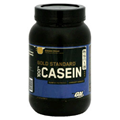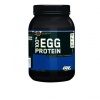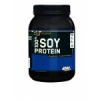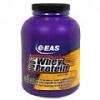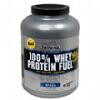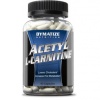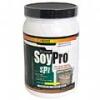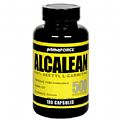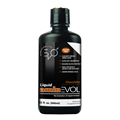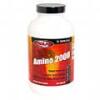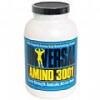- Athletes in training need far and above the RDA of daily protein than a sedentary person and the protein intake for athletes must meet certain criteria
- Protein is an excellent source of branch chain amino acids (BCAAs) such as leucine. Research has shown that athletes who have diets high in leucine have more lean muscle mass and less body fat. This is why protein nutrition is crucial for success
- An athletes’ diet program should consist of 12-20 percent of calories coming from protein
Proper protein intake for athletes is essential for performing your best on game day as well as during the time you spend training. Being knowledgeable about protein nutrition is a prerequisite if you want to excel at any sport. Protein and the amino acids contained in it help the body grow and repair muscle tissue. In addition to helping you build and maintain muscle tissue protein facilitates proper functioning of the immune system, liver, kidneys and blood. An athletes’ diet program that is deficient or indulgent in protein will result in poor performance and possible injury. Below you will find some tips and guidelines to help you develop a proper protein nutrition plan.
The grams of protein that should be taken depend on your size and sport. The RDA for the general population is .8 grams of protein per 2.2 pounds of body weight. For example, a non-athlete adult male who weighs 170 pounds would need 62 grams of protein per day. Athletes who participate in cardiovascular sports such as running, biking and swimming need additional protein approximately 50% above the RDA. So if our 170 male became a half-marathon runner he would need just less than 100 grams of protein per day. Cardiovascular exercise results in amino acids being used to make energy in the body as well as lower glycogen levels, which can result in the body using muscle tissue to create energy. Protein restores amino acids to the body and balances glycogen levels.
Strength training athletes who frequently participate in weight and resistance training need even more protein. The range for them is about 1.4-2.0 grams of protein for every 2.2 pounds of bodyweight. Be sure to make sure your protein is derived from lean sources of food such as chicken, lean red meat and fish. Protein powders and shakes are a great way to make sure you get your daily protein intake in a healthy way. Look for brands that are low in calories, carbs, and fat. A good protein powder will have at least 20 grams of protein per serving.
Besides getting enough protein it is just as important to take the right kinds and at the right time. Whey protein is taken from cow’s milk and is the quickest absorbing protein. It absorbs directly into the muscle tissue within 30 minutes of ingesting. It is most effective when taken right after training or competing. If you suffer from lactose intolerance you can still take a whey protein supplement as long as it contains only whey protein isolate, which is the purest form of whey and contains little to no lactose. Casein (Kay-seen) is also a dairy based protein, but unlike its whey cousin it absorbs very slowly into the body. Casein protein is especially effective when taken at night as your muscles receive a steady flow of amino acids for up to seven hours.
By following these tips and guidelines you will be able to maximize your athletic performance and reach your potential by giving your body the ability to perform at its peak level.
Tags: athletes' diet program, protein intake for athletes, protein nutrition











